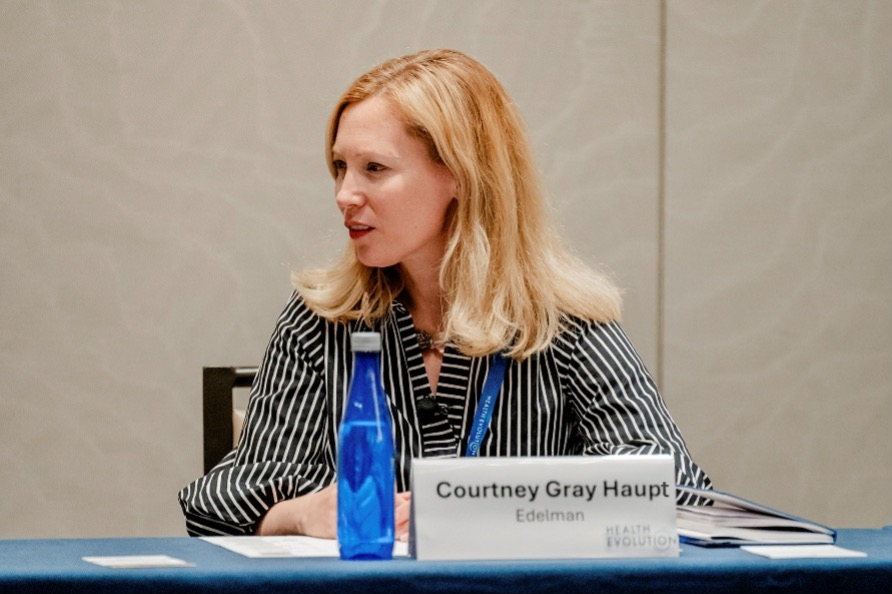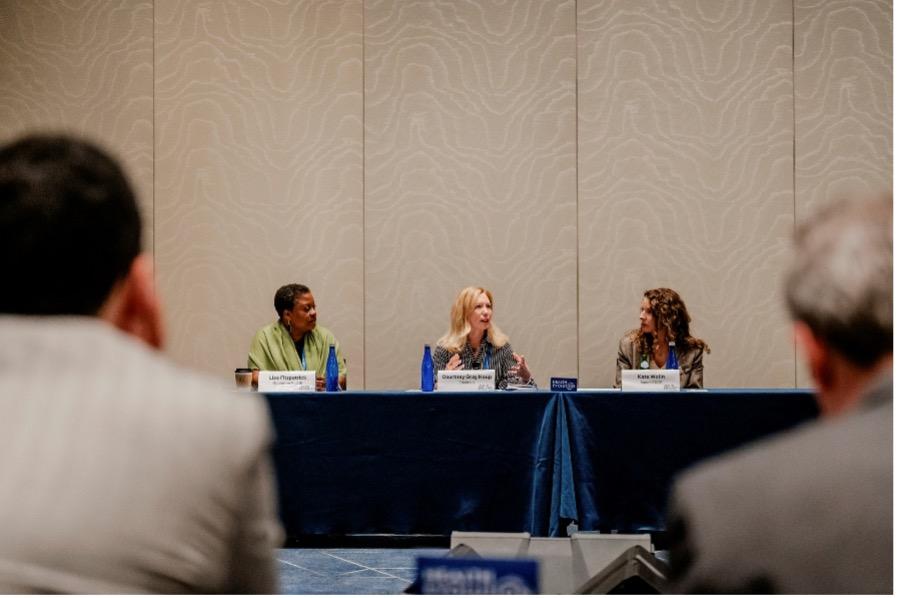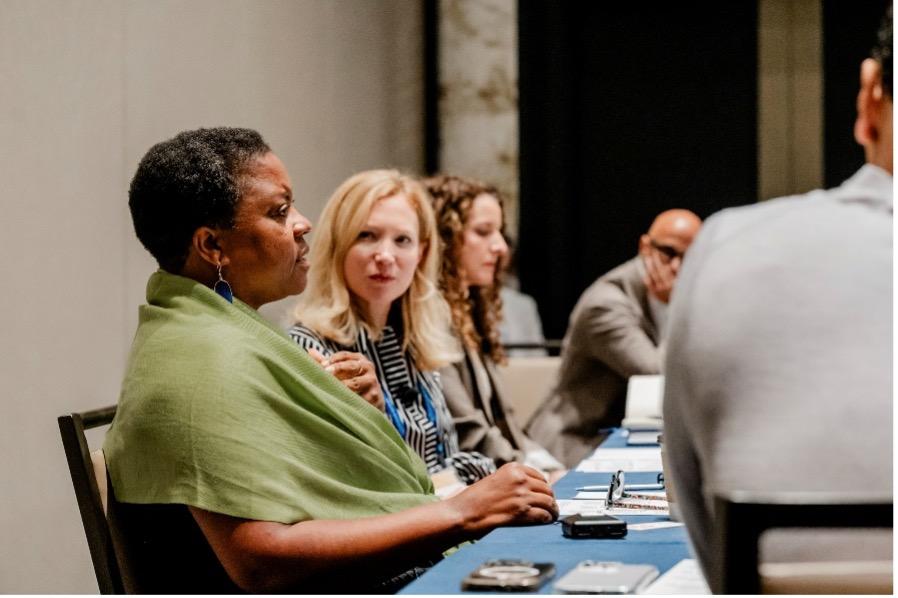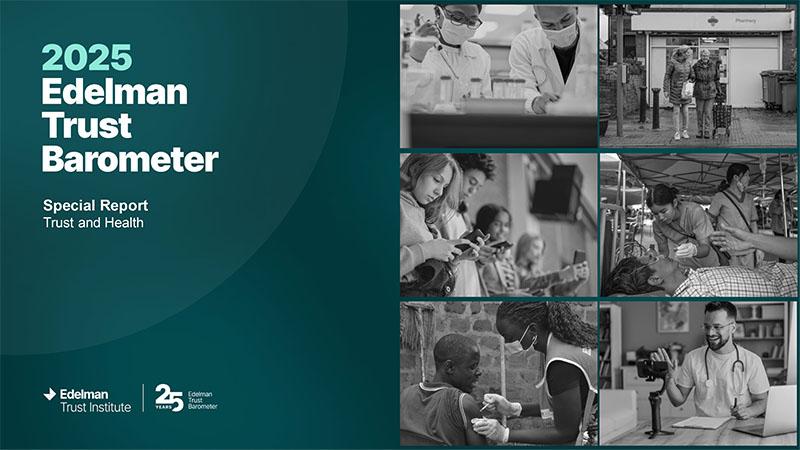In an age of rapid change and skepticism, trust in health is fragile, yet more vital than ever. The 2025 Edelman Trust Barometer Special Report: Trust and Health makes this clear: no institution – government, business, NGOs, or media – is trusted to address people’s health needs. Trust has decentralized, representing both risk and opportunity for leaders across the health ecosystem.
Last month, I met with leaders at Health Evolution Connect 2025 in Nashville, where CEOs, payors, providers, startups, and investors gathered to confront these challenges. In an Edelman-hosted session, “Restoring Trust in Health: Action Over Intention,” I was joined by a behavioral epidemiologist and an infectious disease physician who is also a health literacy expert to engage the group in sharing perspectives. One theme was unmistakable: trust is no longer a given. It must be earned, sustained, and demonstrated through measurable action.
Insights from the Health Evolution Community
Conversations reinforced a simple truth: restoring trust requires humility, courage, and collaboration. Panelists noted that doctors and experts must show more humility – admitting when they don’t have all the answers but committing to finding them. This humanizes expertise and helps patients feel respected. Our data echoes this: two-thirds (64%) of people say someone whose advice helped in the past is an important consideration in determining who is a legitimate health authority, nearly as important of a consideration as someone with formal credentials (72%). As one voice reminded us, we need to shift from asking patients, “What’s the matter?” to “What matters?”
Technology and artificial intelligence were (as expected) another major theme. Far from dehumanizing care, AI was increasingly positioned as a teammate, as well as a strategy to reduce physician burnout. With tools like ambient listening, physicians are rediscovering the joy of practice – able to look patients in the eye rather than type notes. This prompted a provocative question: can more technology actually make healthcare more human? Still, leaders urged caution. With the Centers for Medicare & Medicaid Services (CMS) preparing to launch a Health Tech Ecosystem and AI app library by 2026, the question of which tools can be trusted remains open. Our research confirms the tension: while 76% of people feel confident finding trustworthy health information, younger adults are twice as likely as older ones to believe the average person who has “done their own research” is just as knowledgeable as a doctor.
Generational divides were also front and center. Nearly half (45%) of 18- to 34-year-olds say in the past year they have disregarded provider guidance in favor of advice from friends or family, while 38% have done so in favor of social media. These younger voices are not rejecting expertise – they are redefining it. Trust for them is about empathy, proximity, and communication style. Health leaders must learn to engage this participatory ecosystem with humility, frequency, and authenticity.
And while people continue to diversify their health information sources, our research also found “my provider” is highly-trusted to tell the truth about health issues (82% globally) – confirming what multiple leaders at Health Evolution underscored: health trust is local. Engaging and collaborating with local health voices will be critical to ensure health information resonates and is effectively disseminated. When sharing how they effectively built lasting trust, leaders recounted a community-first approach.
Several CEOs spoke candidly about the velocity of change and the courage required to lead through risk. They spotlighted how resilient relationships grow by listening harder, showing vulnerability, and taking bold but fact-based risks with a community-first approach. Leaders agreed meaningful systemic change won’t be possible if the current healthcare ecosystem continues to operate in silos – stakeholders must share collective responsibility to realize the potential AI and other advancements can bring.
Action Over Intention
Our Special Report: Trust and Health makes clear that anecdote is not the enemy of science – it is the bridge to it. Undermining science or allowing misinformation to flourish has consequences beyond reputation. To earn back influence, leaders must blend rigor with relatability, showing they understand people’s lived realities. We must:
Elevate proximity: Empower local voices (community leaders, providers, peers) to carry trusted messages.
Redefine communication: Translate science into language people can understand and act upon.
Demonstrate action over intention: Move from promises to visible, measurable commitments that improve access, equity, and experience.
Reignite collaboration: Channel the urgency and unity of our pandemic response, so innovation serves and includes society.
Trust is the most valuable currency in health today. At Health Evolution Connect, it was clear those willing to act boldly – to listen, adapt, and communicate with empathy – will not only strengthen their organizations but also restore confidence in the systems meant to care for us all.
Courtney Gray Haupt is Global and U.S. Health Chair.







